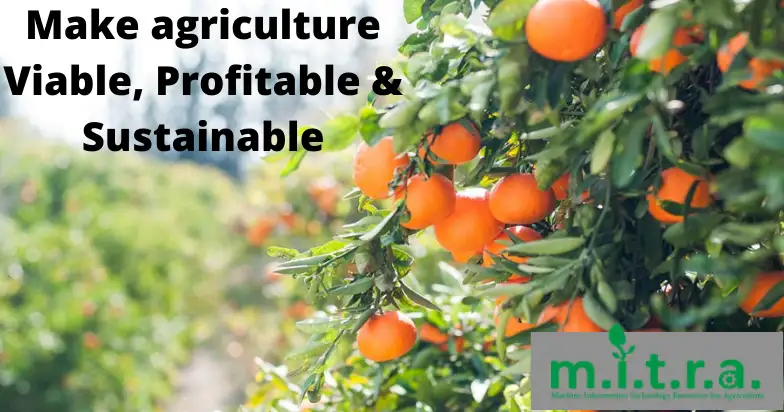Transforming how you see food can change your life. Reversing industrial farming’s soil deterioration may preserve civilization from catastrophe. Sustainable farmers feed themselves and others. They’re recovering land, replenishing ecosystems, and reviving subjugated peoples’ tales. You can get an Agriculture Sprayer Machine at Mitra that is utilized in agriculture, plantation, forestry, and the garden.
What Is Sustainable Farming?
Growing food in ways that benefit society, the environment, and the economy is what is meant by the term “sustainable farming.” It’s different from what’s often seen in large-scale, industrial agriculture. Farms can be profitable businesses, but they can also be non-profits or leisure projects. Sustainable farmers aim to enhance community health and well-being while working with nature. For spraying crops or soil, the term agriculture sprayer refers to a whole spray system that uses pressure to move spray fluid from its tank to its nozzles.
What Is the Importance of Sustainable Farming?
Sustainable farming solves difficulties caused by how much of our food is farmed now. Today’s industrial farming methods, many of which date from the 1950s and 1960s Green Revolution, deplete our natural resources via monocultures and the abuse of pesticides and fertilizers while leaving people with uneven access to food and nourishment.
- Environment. As a nonrenewable resource, sustainable farming protects and preserves the soil.
- Health and Welfare. One strategy to correct food system inequalities that result in persistent health disparities among people of colour is to put food production in the hands of underprivileged communities.
- Animal Welfare. Most animals produced for human food are bred and slaughtered in unsanitary circumstances. Antibiotic usage is one example of a practice that sustainable farmers consider reforming.
- Nonrenewable resource efficiency. Coal, nuclear, oil, and natural gas are nonrenewable energy sources we use to operate vehicles and trucks, cook, heat our houses, and power our tablets and displays. Food production is a significant source of greenhouse gas emissions, as is the use of nonrenewable energy sources. Sustainable farmers utilize such resources carefully to protect the environment.
What Are the Techniques and Practices of Sustainable Agriculture?
“Sustainable farming” is a strategy, not a formula. Growers use practices that represent their principles. Orange sprayer options include backpacks, weed-killing and disinfectant sprayers, grass-spraying, and other types of tools for gardening. Mango cultivation benefits from the use of a mango sprayer. Here is some common sustainable agricultural terminology.
- Utilizing agroforestry methods. Forests feature a wide range of species, are dense forests, and act as carbon sinks. In agroforestry, crops are planted utilizing natural forest patterns. It’s worth seeing how they use agroforestry techniques like alley cropping and terraced farming.
- Aquaponics and Hydroponics. Aquaponics shares water and nutrients to produce fish and crops. Instead of soil, hydroponic farmers use clay balls, coconut hair, and cloth. Watch Charles Collins’ outdoor aquaponics and hydroponics systems. These techniques work indoors with electric light.
- Avoid Soil Erosion. Sustainable farmers should plant cover crops, create terraces with stones or logs, and limit soil digging where there is plant cover to reduce soil erosion. Overgrazing and deforestation can be avoided.
- Better Water Management. Farmers can protect the environment by using fewer fertilizers and pesticides, which reduces water contamination.
- Integrating Crops and Livestock. To better manage waste and feed domesticated animals like cows, goats, and sheep, farmers can use cover crops.
- Managed Grazing. Farmers can prevent cows’ damage to grazing pasture by limiting their access. Regenerative grazing has supporters and detractors.
- System and landscape management. Indigenous peoples farm holistically. The Cultural Conservancy repurposed Native land into an agricultural and cultural centre. They altered the land utilizing ancient agricultural approaches that emphasize the human-ecosystem interaction.
- Planting Cover Crops. Planting various cover crops in the fall and winter will help prevent soil erosion and the dying of beneficial earthworms due to freezing temperatures. In addition to insect control and soil fertility, cover crops can be beneficial.
Is it possible to sustain organic farming?
Organic farming is generally considered a kind of sustainable farming since it avoids the use of harmful pesticides and herbicides and places a high value on environmental well-being. Automatic and manual HTP pump sprayers from Mitra are available at incredible costs.
Towards a Future That Is More Sustainable
Sustainable farmers use methods beyond industrial agriculture to develop food in ways that are both more equitable and more tenable over the long term, regardless of whether they are high-tech or low-tech, large- or small-scale, and irrespective of their underlying philosophy. The grape sprayer should be chosen by the size of the area to be dipped. An agriculture power sprayer machine is an agricultural and landscaping device that uses manure to irrigate crops and bushes.

